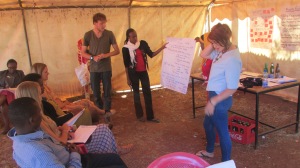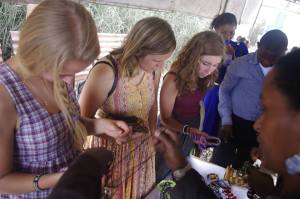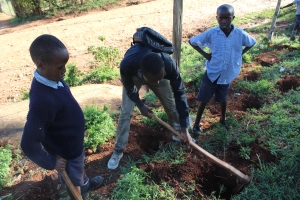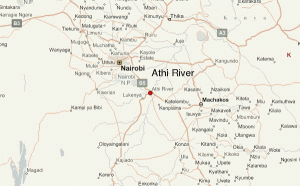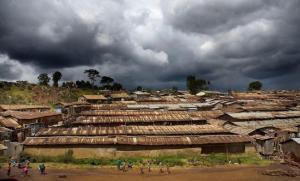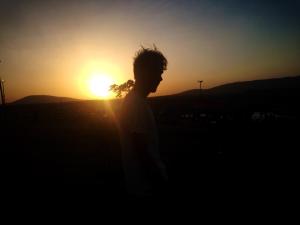What is poverty?
Poverty is defined relative to the standards of living in a society at a specific time. People live in poverty when they are denied an income sufficient for their material needs and when these circumstances exclude them from taking part in activities which are an accepted part of daily life in that society.
Terry Child Support and Youth Resource Centre is a non-partisan, non-profit making, non-governmental organization established in 2002 with the aim of reaching out to vulnerable children and youths in the wider Machakos County. Terry provides community support systems that empowers orphans, the youth, and children by providing basic needs such as food, shelter, clothing, medical care and counselling and education.
One of the newest projects at Terry’s is based in Athi River, its aim is to provide an income generating activity for street families whilst also offering free education for their children. For our Active Citizenship Day (ACD) on Friday the 20th we concentrated on the topic of ‘eradicating poverty through the use of IGA’s’, the day began with a closer look into poverty both in Kenya and the UK. As there is not one specific definition of poverty, each of us shared definitions that various organisations use when relating to poverty. Later, we enlightened the group on different cross-cultural facts relating to poverty, comparing the United Kingdom to Kenya, and more specifically Machakos.
After presenting this information we wanted to get people thinking about income generating activities, what could they do to provide themselves with an income? We divided people into groups and each group was given a handout with a very basic business plan template of which they were to follow, it contained questions such as ‘describe your target customer’ and ‘who is your closest competitor?’ The response we got from our team was proactive, every team presented their business plans with clarity and energy. Our favorite group had the idea of opening a café which also doubled up as a learning environment for skills such as beading and playing musical instruments. After we’d awarded the winning team we introduced our guest speaker Liz to talk about how to eradicate poverty specifically in Machakos, she concentrated mainly on the ideas of women and youth empowerment, as well as saving schemes and better farming techniques.
After we had got the group thinking about our topic we boarded a matatu and made our way to Athi River, where we were to meet a group of men and women who had been taken from the streets and taught how to bead items in order to generate income. The group were happy to see us, they introduced themselves and showed us how they make the items they were selling. These consisted of bags, placemats, vases, jewellery and much more. The beading meant that they could now afford to send their children to school as well as home and feed their families.
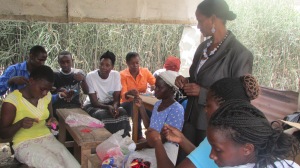
The group were inspiring to see and really proved to us that projects like this one are integral to eradicating poverty, as the saying going ‘give a man a fish and he’ll eat for a day, teach a man to fish and he’ll eat for a lifetime’. Our team let us know that they had learnt a lot throughout the day, and seeing the group at work had really helped them to understand the meaning of income generating activities and how these groups can help to bring people out of poverty.

